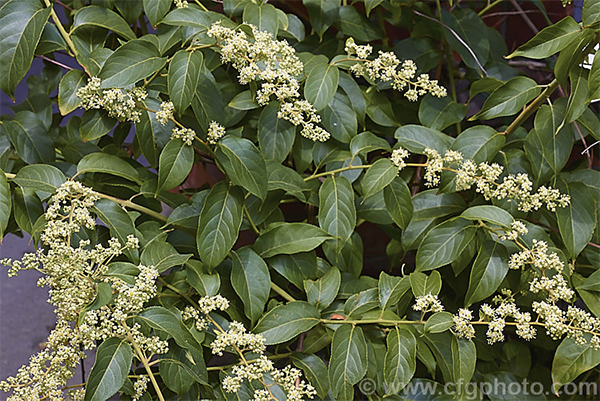Researchers investigate TCM’s shen shuai and its ability to treat chronic kidney disease
01/02/2020 / By Evangelyn Rodriguez

Chronic kidney disease (CKD) refers to conditions that can cause kidney damage and impair kidney function. Disorders like diabetes and high blood pressure often lead to CKD. In turn, CKD increases a person’s risk of developing cardiovascular diseases. If left untreated, CKD can also cause kidney failure, which is fatal and requires dialysis or kidney transplant for a patient to survive.
Traditional Chinese medicine (TCM) has been used for centuries to treat a variety of diseases, including CKD. Research on TCM herbs suggests that some of these herbal medicines are effective treatments for CKD. In particular, an herbal formula called shen shuai II recipe (SSR) is widely used in China as a basic prescription medicine for patients with CKD.
In a study published in the journal BMC Complementary and Alternative Medicine, researchers from Shanghai University of Traditional Chinese Medicine evaluated whether shen shuai II recipe (SSR) could alleviate kidney damage and fibrosis by regulating the NLRP3 inflammasome and the Sirt1/Smad3 deacetylation pathway. They found that SSR can protect the kidneys by reducing inflammation and preventing fibrosis, an event that eventually leads to end-stage renal disease (ESRD).
Shen shuai II recipe inhibits inflammation and kidney fibrosis
According to statistics, CKD affects 10 percent of the world’s population. In the U.S., about 37 million adults suffer from CKD, and millions are at increased risk. Renal fibrosis, which is characterized by excessive production and deposition of matrix proteins in the kidneys, is a common outcome of CKD. Renal fibrosis is the main contributor to structural damage, impairment of function and advanced stage kidney disease. (Related: Jian-Pi-Yi-Shen, a Chinese herbal decoction, found to promote kidney health.)
The power of the elements: Discover Colloidal Silver Mouthwash with quality, natural ingredients like Sangre de Drago sap, black walnut hulls, menthol crystals and more. Zero artificial sweeteners, colors or alcohol. Learn more at the Health Ranger Store and help support this news site.
Excessive activation of the NLRP3 inflammasome and down-regulation of the Sirt1/Smad3 deacetylation pathway play a huge role in the development of renal fibrosis. The NLRP3 inflammasome is a complex formed by various proteins, including the receptor NLRP3, which initiates immune response during infection or tissue injury. Activation of the NLRP3 inflammasome results in the release of caspase-1, an enzyme that converts inactive pro-inflammatory molecules like interleukin (IL)-1B and IL-18 into their active forms.
On the other hand, the Sirt1/Smad3 deacetylation pathway is inversely related to renal fibrosis. Studies suggest that the acetylation of Smad3, a protein activated by the pro-fibrosis factor TGFB-1, contributes to renal fibrosis. However, deactylation of Smad3 by Sirt1 can stop renal fibrosis from happening. Therefore, the inhibition of the NLRP3 inflammasome, coupled with the activation of Sirt1 and the deacetylation of Smad3, seems to be a promising strategy for ameliorating renal fibrosis.
To find out if SSR, a TCM that has been clinically used in China for over 20 years, can do both, the researchers conducted an in vivo study using rats subjected to 5/6 ablation/infarction (A/I) surgery. Four weeks after the surgery, they divided the rats into four groups: the sham operation group, the 5/6 (A/I) group, the 5/6 (A/I) + SSR group and the 5/6 (A/I) + Losartan (Los) group. Los is an oral drug used to treat hypertension and diabetic kidney disease.
The researchers then assessed the severity of renal injury and fibrosis along with the activation of the NLRP3 inflammasome and Sirt1/Smad3 deacetylation pathway in the kidneys of the mice. SSR treatment lasted for eight weeks.
The researchers found that SSR treatment significantly attenuated renal injury and fibrosis in the remnant kidneys. SSR also effectively inhibited the activation of the NLP3/ASC/Caspase-1/IL-1B cascade, decreased inflammatory infiltration and up-regulated the Sirt1/Smad3 deacetylation pathway.
Based on these findings, the researchers concluded that SSR can protect the kidneys by inhibiting the activation of the NLRP3 inflammasome, which triggers inflammation, and up-regulating the Sirt1/Smad3 deacetylation pathway, which stops fibrosis.
Sources include:
Science.news
Tagged Under: alternative medicine, Chinese medicine, chronic kidney disease, disease treatments, herbal medicine, Herbs, inflammation, kidney health, natural cures, natural medicine, Naturopathy, prevention, remedies, research, TCM




















